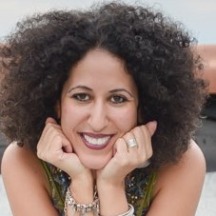The Woodrow Wilson International Center for Scholars held an online panel discussion, “The Cost of Afro-Arab Social Exclusion in MENA,” in the echo of the words of Tunisian President Kais Saied calling for “urgent measures” to address the entry of irregular immigrants from sub-Saharan countries, “with their lot of violence, crimes, and unacceptable practices.” (MENA is an English language acronym for Middle East and North Africa.)
At a meeting of the National Security Council, the Tunisian president added, “The undeclared goal of the successive waves of illegal immigration is to consider Tunisia a purely African country that has no affiliation to the Arab and Islamic nations.”
Once panelist Khaled Esseissah was at a wedding with his lighter skinned Bizan friends, and one other guest said, “Oh, they got an abeed” with them. Abeed is Arabic for slave.
Panelist Khaled Esseissah, a University of Wisconsin-Madison assistant history professor, explained the ethnic nuances of North Africa by telling his personal story. “People of African descent, they are dark, they are Black,” explained the Mauritania native, who was born Haratin. Generally, a Haratin can be culturally like any other Mauritanian, but since they are descended of enslaved people, they are not treated as such by the Bizan, or privileged class. Haratins also live in Morocco, Western Sahara, and Algeria.
As a youngster, his being a “other” was not a part of his consciousness, but his awareness grew as he got older. Once he was at a wedding with his lighter skinned Bizan friends, and one other guest said, “Oh, they got an abeed” with them. Abeed is Arabic for slave.
Tunisia Reveals African Fissures and Threatens African Unity

Over the years he began to notice that he sometimes is not considered “fully Muslim,” that people who look like him are over represented in sports, and the only Black religious figure often spoke of is Bilal, who was once enslaved. Interestingly, he says, it was during the French colonial period that the Haratins began to “assert themselves.”
Maha Marouan, an associate professor in Women's, Gender, and Sexuality Studies at Pennsylvania State, is not too keen on the thought of dividing Africa between North Africa and sub-Saharan Africa. The Morocco native sees the north as being African, but connected to the Arab world through “language and religion.” Having Africans “chose one identity over the other is absurd,” she says.
While the two had their own nuances to reveal the racial classifications and social stratifications in North Africa, they did agree that the World Bank’s relationship with Africa is worth its own discussion. In the US, the federal government is considering how MENA people are counted statistically across the United States including having Americans consider using a new checkbox to describe themselves: "Middle Eastern or North African."
US considers how people of Middle Eastern or North African (MENA) descent are counted in statistics across the United States with a new checkbox for "Middle Eastern or North African." - 39 second video
Maha Marouan, an associate professor in Women's, Gender, and Sexuality Studies at Pennsylvania State, is not too keen on the thought of dividing Africa between North Africa and sub-Saharan Africa. The Morocco native sees the north as being African, but connected to the Arab world through “language and religion.” Having Africans “chose one identity over the other is absurd,” she says.
While the two had their own nuances to reveal the racial classifications and social stratifications in North Africa, they did agree that the World Bank’s relationship with Africa is worth its own discussion. In the US, the federal government is considering how MENA people are counted statistically across the United States including having Americans consider using a new checkbox to describe themselves: "Middle Eastern or North African."
US considers how people of Middle Eastern or North African (MENA) descent are counted in statistics across the United States with a new checkbox for "Middle Eastern or North African." - 39 second video
Advertisers | Contact Us | Events | Links | Media Kit | Our Company | Payments Pier
Press Room | Print Cover Stories Archives | Electronic Issues and Talk Radio Archives | Writer's Guidelines






